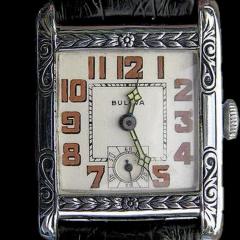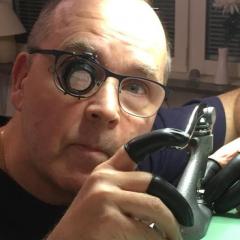-
Recently Browsing
- No registered users viewing this page.
-
Topics
-
Posts
-
yes the things we read in the universe I did see some where it was either difficult to clean off or it contaminated the cleaning fluid there was some issue with cleaning. I was trying to remember something about grease where as opposed to a substance of a specific consistency they were suggesting it had a base oil with something to thicken it. That conceivably could indicate that the two could separate and that would be an issue. But there is something else going on here that I had remembered so I have a link below and the description of the 9501 notice the word that I highlighted? Notice that word appears quite a bit on this particular page like 9415 has that property all so they 8200 mainspring grease and that definitely has to be mixed up when you go to use it because it definitely separates. just in case you didn't remember that nifty word there is a Wikipedia entry. https://en.wikipedia.org/wiki/Thixotropy https://www.moebius-lubricants.ch/en/products/greases I wonder if what you're seeing is the boron nitride left behind after cleaning. In other words it's the high-pressure part of the grease and it's probably embedding itself into the metal which is why it doesn't clean off and shouldn't be a problem?
-
Yes and no. I use Moebius 9501 synthetic grease and it is significantly runnier than the Moebius 9504 synthetic grease (and I assume Molykote DX) that I previously used. I haven't seen 9504 spread and it is in my opinion the best grease money can buy. However, my current method of cleaning doesn't remove it from the parts, so that's why I have decided to use the 9501 instead. I believe I read somewhere that Molykote DX too is difficult to clean off. Thinking about it, I'm pretty sure my 9501 grease which expired in June 2022 is runnier now than it was when it was new, but whether new or old it always needs to be stirred before use. So, that's why I treat the parts of the keyless works, cannon pinion, etc. with epilame. That was very thoughtful of you and something that had completely passed me by. Not sure what the epilame will do when it wears off in a non-oiled hole. Anyone?
-
By watchweasol · Posted
Hi not found one either yet, close relative is the 436 and 4361 according to ranff.db. It gives quire a lot of detail but not as good as the old site. RANFF.DB. -
By nevenbekriev · Posted
No problem to replace the setting with the staking set. Press the new setting from inside, use flat face punch with hole. The punch must be wider than the setting, the hole to be as not to press at the stone, but only on the bush. Press by hand until the setting gets flush with the plate surface, so the punch must rest on it. -
By nevenbekriev · Posted
Yes, the arbor usually makes about 3 to 3.5 turns. But usually spring takes 2/3 to 3/4 of the free space in barrel, not 1/2, so take it for the calcullations. This way the change in torque is smaller. I have a picture for You, this one is little older, but no mater
-







Recommended Posts
Join the conversation
You can post now and register later. If you have an account, sign in now to post with your account.
Note: Your post will require moderator approval before it will be visible.